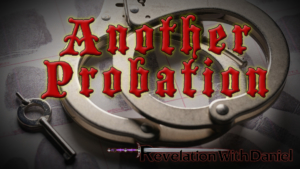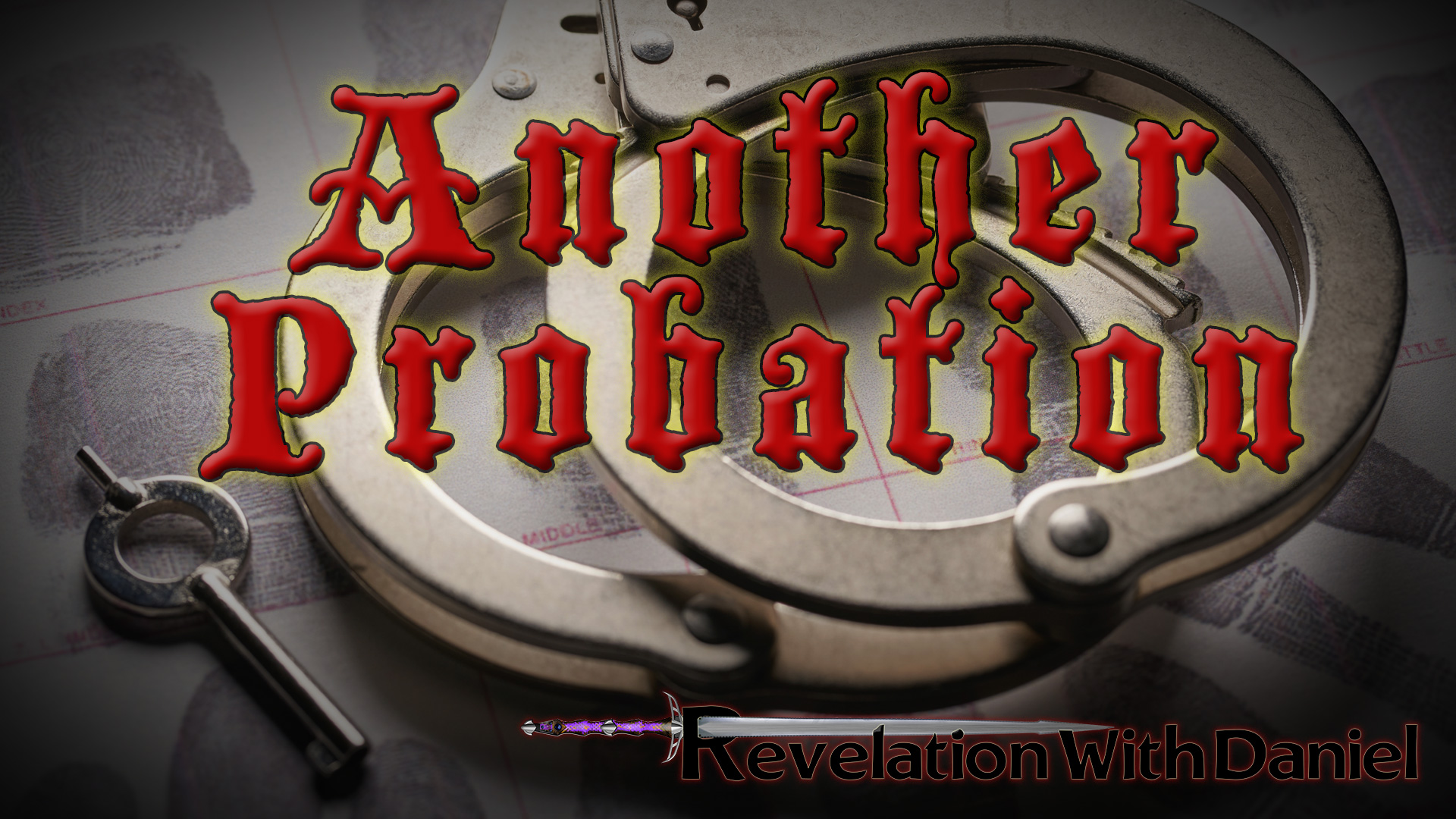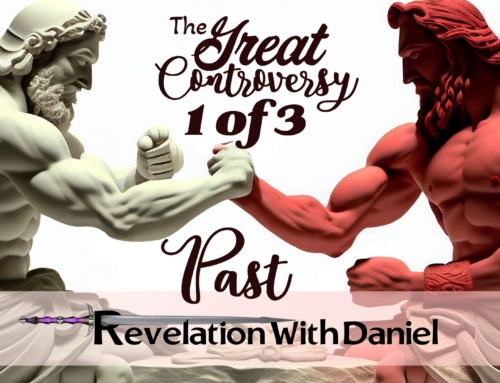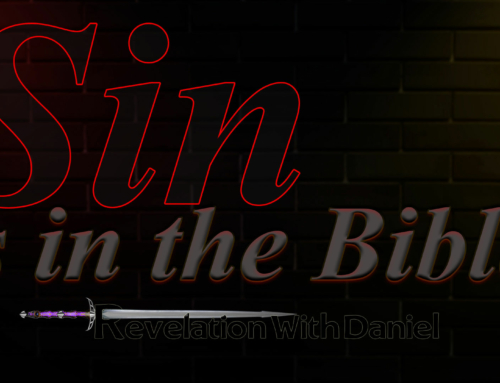 Here the mysterious cup trembled in His hand. Here the destiny of a lost world was hanging in the balance. Should He wipe the blood drops from His brow, and root from His soul the guilt of a perishing world, which was placing Him, all innocent, all undeserving, under the penalty of a just law? Should He refuse to become man’s substitute and surety? refuse to give him another trial, another probation? Ms42-1897.7
Here the mysterious cup trembled in His hand. Here the destiny of a lost world was hanging in the balance. Should He wipe the blood drops from His brow, and root from His soul the guilt of a perishing world, which was placing Him, all innocent, all undeserving, under the penalty of a just law? Should He refuse to become man’s substitute and surety? refuse to give him another trial, another probation? Ms42-1897.7
Separation from His Father, the punishment for transgression and sin, was to fall upon Him in order to magnify God’s law and testify to its immutability. And this was to forever settle the controversy between the Prince of God and Satan in regard to the changeless character of that law. Ms42-1897.8
Those who transgress the law of God must suffer the penalty of transgression; but by repentance of sin, by faith in Christ, who, innocent, suffered the punishment for the guilty, the sinner may be pardoned, and through the merit of Christ, may have another probation in which he may have opportunity to form a character like Christ’s character. No one will enter the abodes of bliss who has not been tested and proved; for it must be demonstrated that those who enter heaven will be obedient to its laws, and in harmony with its government. If through the merit of Christ, we develop a character in submission to the will and way of God in this world, our names will stand registered in the Lamb’s book of life. Every soul is now deciding his own destiny, proving whether he will be worthy to unite with the saints in light, or unworthy of an entrance into the city of God—fit only to remain with the wicked and to perish with them. YI January 19, 1893, par. 4
Adam and Eve were placed upon probation in the garden of Eden, and they were to prove their loyalty to their Creator by obedience to his law of love; but they fell, through the temptation of a wily foe. A great and infinite sacrifice has been made, that man may have another trial. God provides that man may have another probation, and his efforts to keep the law are made acceptable through Christ. “God so loved the world, that he gave his only begotten Son, that whosoever believeth in him should not perish, but have everlasting life.” Christ came to bear the conflict in which man was conquered. The earth was the battle-field. Just before the temptation he bowed on Jordan’s bank and offered up a prayer that cleared its way to the throne of his Father. The Heaven opened and the voice of God responded, “This is my beloved Son, in whom I am well pleased;” and the Holy Spirit in the form of a dove, like burnished gold, descended upon his head. ST November 24, 1887, par. 8
Our first parents transgressed the law of God in the garden of Eden, and fell from their high estate, and death was pronounced upon Adam and his posterity; but the human race was not left to hopeless misery. The Son of God consented to become man’s substitute and surety; he consented to take the wrath of the Father upon himself. Through the infinite sacrifice of Christ in man’s behalf, the star of hope illuminated the dark future of Adam, and another probation was granted him in which to prepare for eternal life. Jesus came to our world to be a man of sorrows, to become acquainted with grief. He did not take his position with the lofty and rich of this world, although he owned the world. Had he done this, there might have been some excuse for the haughty bearing of the rich, as though they thought salvation was only for them. Jesus said that he came to preach the gospel to the poor. With his human arm he reached to the very depths of human woe, in order that he might lift up fallen man, and elevate and ennoble the race, and finally exalt the overcomers to his throne. ST July 28, 1890, par 3
Christ suffered the penalty of the law, which was death, in order to give to man another trial, to provide for him another probation, and allot to him another opportunity of proving loyal to the authority of God. Every soul is to be tested, for he is held responsible for obedience to the divine law, and, although Christ has died for man’s transgression, those who continue in disobedience will suffer the penalty of their sin. The condition upon which men will be offered the benefits of salvation is through repentance toward God, because of transgression of his holy law, faith in Christ, by which he receives power from on high to become an obedient subject of the government of God. Those who would be saved must take Christ as their personal Saviour, and become not only hearers, but doers of his words. “For God so loved the world, that he gave his only begotten Son, that whosoever believeth in him should not perish, but have everlasting life.” ST September 24, 1894, par 9
The Lord has given Jesus to our world, to a life of suffering and a shameful death, in order to save perishing souls. In the place of punishing the guilty sinner, the Lord allowed his only-begotten Son to suffer the penalty of transgression, that man might have another opportunity, that another probation might be granted him in which to return from his transgression to his loyalty to God. By thus dying for man, Christ has shown that his love for the human family is measureless. And having done this, he will not withhold any facilities, any gift of heaven, that will enable man to accomplish the glorious work of salvation. ST October 14, 1897, par. 6
What more would they behold from the lofty heavens, from which angels descend, cooperating with every one who is dedicated to the service of God?—They would see that this world is the scene of a continuous conflict. They would see that human beings are required to fill posts of duty. They would see unnumbered agencies of evil at work, taking advantage of those who are off guard, to set in operation influences fraught with evil. ST October 28, 1897, par. 5
What further would they see?—They would see that in the great judgment day those who have not worked for Christ, who have drifted along, carrying no responsibility, thinking of themselves, pleasing themselves, will be placed by the Judge of the whole earth with those who did evil. Both receive the same condemnation. If those who thus wasted their lives were given another probation, would they not work soberly and righteously, with soul and mind and strength, to accomplish something for the Master, who left them an example by his life of self-denial and self-sacrifice, by his diligence in the work of saving perishing souls? ST October 28, 1897, par. 6
It was here that the mysterious cup trembled in his hand. It was here the destiny of a lost world was hanging in the balance. Would his human nature bear the strain? Would the sins of an apostate world, since Adam’s transgression to the close of time, be laid upon him? Would he drink the cup? Or would he wipe the blood drops from his brow, and cast from his soul the guilt of a perishing world, which was placing him, all innocent, all undeserving, under the penalty of a just law? Would he refuse to become man’s substitute and surety, refuse to give him another trial, another probation? It was not yet too late to refuse to drink that awful cup of suffering, the wrath of his Father against transgression. He might have said, “Let the wilful transgressor receive the penalty of his sin, and I will go back to my Father.” But no; he did not make this choice. Altho sin was the awful thing that had opened the flood-gates of woe upon the world, he would become the propitiation of a race that had willed to sin. ST December 2, 1897, par. 10
“If we say that we have no sin, we deceive ourselves, and the truth is not in us.” God cannot change his law in order to save men; he cannot alter it to save the world; but he has not refused to give his own Son, that men might have another probation, and become heirs of heaven. Jesus took humanity upon him, and in so doing what honor he placed upon the race! He suffered as a man, he was tempted as men are tempted, yet without sin. He was made sin for us, though he knew no sin, that we might be made the righteousness of God in him. He “gave himself for us, that he might redeem us from all iniquity, and purify unto himself a peculiar people, zealous of good works.” RH November 18, 1890, par. 6
After the fall of man, it cost our heavenly Father an infinite price to provide a way to prevent the defaced image of God in man being wholly obliterated, and to provide for the restoration of that image in the soul. “For God so loved the world, that he gave his only begotten Son, that whosoever believeth in him should not perish, but have everlasting life.” Then will you neglect your God-given capabilities? Will you fail to improve upon the talents that have been bestowed upon you by Heaven? Will you lightly regard the advantages of another trial, another probation, in which it is to be decided whether or not you will have eternal life? Will you trample under foot the great privileges that have been secured to you at infinite cost? RH July 17, 1894, par. 8
The more we study the attributes of the character of God as revealed in Christ, the more we see that justice has been sustained in the sacrifice that met the penalty of the law, and that mercy has been provided in the only begotten Son, who bore the penalty of the law in the sinner’s place, in order that man might have another probation, another opportunity to be obedient to the law of God’s government, that it might be made manifest who could be trusted to become members of the Lord’s family, children of the Heavenly King. Those who are obedient to the law of the government of God while in this brief probation, amid all the counter-influences of Satanic agencies, will be pronounced in heaven loyal children of the Lord of Hosts. They will be declared to be separate from the sinful practises of the world, and to them God gives the promise, “I will be a Father unto you, and ye shall be my sons and daughters, saith the Lord Almighty.” RH March 9, 1897, par. 5
Let us listen to His voice: “Think not that I am come to destroy the law or the prophets: I am not come to destroy, but to fulfill.” Every specification of that law He came to fulfill. “For verily I say unto you, Till heaven and earth pass, one jot or one tittle shall in no wise pass from the law until all be fulfilled.” Christ came into the world to suffer and die, that man, being ransomed from the power of Satan’s authority, might have another probation in which to prove whether he would return to his loyalty, to keep the commandments of God and become the child of God. Lt89-1898.17
Well may the heavenly angels marvel that Christ, their loved commander, should come from heaven to earth, clothing His divinity with humanity, and humbling Himself that He might reach to the very depth of human woe and misery to lift man up from his degradation. Jesus did not shun self-denial; He suffered shame and reproach, insult and mockery, and died an ignominious death, that man might have another probation. And yet man refuses to be uplifted; he hugs the chain, and chooses slavery with all its degradation, rather than freedom. Those who will indulge appetite at any cost will be just what they choose to make themselves. They do not choose the image and superscription of Christ, but the image and superscription of the arch deceiver. That Christ should be discarded for these soul-and-body-destroying indulgences is an amazement to the unfallen universe. Lt8-1893.9
There are plenty of people who do not care for anything that is serious. The world is now as it was in the days of Noah. They are eating and drinking, marrying, and giving in marriage; they are planting and building, expending money for liquor and tobacco; for things which destroy the physical, mental, and moral power of those for whom the Lord Jesus has given His life to make it possible that they might have another probation. They put into their stomachs things which benumb the mind, confuse the senses, and make them incapable of acting as sensible men. Amusements for self gratification, horse races, cricket and baseball matches, theater entertainments and gambling, are all in full force, testifying that we are living in the time when the end of all things is at hand. Of the people in Noah’s day the statement is made that they “knew not until the flood came and took them all away.” And “as it was in the days of Noah, so shall it be when the Son of man is revealed.” Lt109-1898.2
As soon as man sinned, Christ took up the work of redemption. This He did to save the human race from eternal ruin. He took man’s guilt upon Himself. He became our substitute and surety, giving us another trial, another probation. In this probation we are now living. Every son and daughter of Adam is being tested and tried. Thus God will prove whether men and women will return to their allegiance to Him. Ms162-1899.15
Let us see what He says about it. Here He declares Himself to be the Vine. “Ye are the branches: He that abideth in me, and I in him, the same bringeth forth much fruit: for without me ye can do nothing.” Now, do you think that Jesus Christ who died upon the cross of Calvary to pay the penalty of transgression, to become a substitute and surety before the justice of God, to die on Calvary’s cross that we might become partakers of the divine nature—the sap that flourishes in the parent stock—that Jesus is going to be with us when we are walking right contrary to the commandments of God? He has given us another test, He has given us another trial, He has given us another probation, that we may prove whether we will be loyal to the God of heaven, to obey His commandments, or whether we will be disloyal because we consider that it is our privilege to be so. Because we cannot see the end from the beginning, and judge whether we are coming out all right or not, is it not best for us to believe God? Is it not best for us to be right because it is right? Ms43-1894.7
Daniel pleaded for the honor of God to be preserved. His prayer was heard, and once more the Lord had mercy upon His rebellious people. Once more He took them into favor, and a second temple was built. Jerusalem was given another probation. Ms138-1899.31
By the infinite sacrifice that the Lord God of heaven has made in giving His Son, that sinners might be saved from eternal death, we know that He means to counterwork sin. He has provided this expensive means to save the souls who would surely perish if He had not done so. In the place of punishing the guilty sinner, the Lord allowed His only begotten Son to suffer the penalty of transgression, that man might have another opportunity, that another probation might be granted him in which to return from transgression and sin to his loyalty to God, and stand before God in repentance. He cannot hope to stand before God innocent through the merits of Jesus Christ while he continues in sin. He must cease to transgress and become loyal and true. Lt119-1897.3
Mighty, invisible powers are acting their part in the affairs of men in the last great conflict. The warfare will be so conducted that the power, which has exalted itself above God and has enlisted souls in rebellion against God, will work out fully the principles of disobedience. Every mouth shall confess the glory of God. It will be plainly seen that the principles of righteousness and obedience to God’s law are above all powers, and that the retribution which falls upon transgressors is just. The unfallen worlds and the heavenly universe will see the result of the apostasy of Satan and will acknowledge God as the living and only true God. The forces of rebellion will confess God’s righteousness, but this acknowledgment will not give them another probation. Their cases are forever settled. After the second resurrection, Satan, the root, and his children the branches, will perish together. Lt25-1900.11
Do not venture to think that if you do not overcome your sins in this life, you will be given another probation in which to secure the eternal reward. No, no, no! This present time is the only probation we shall have. And the three Powers, the Father, the Son, and the Holy Spirit have pledged themselves that if we walk in the light as Christ is in the light, we shall have fellowship with one another and be cleansed from all sin in the blood of Jesus. “If we confess our sins, he is faithful and just to forgive us our sins, and to cleanse us from all unrighteousness.” “Whoso keepeth his word, in him verily is the love of God perfected.” Lt21-1901.42
Sin has entered our world through the apostasy of Satan, once an angel of light in the heavenly courts. And the human family brought death on themselves by yielding to temptation. But Christ, the Son of the living God, came to this world to ransom every sinner from death. The living way has been laid open. Every provision has been made that man shall have another probation and trial. All who will return to their loyalty may secure the life which is eternal. Life and immortality have been purchased by Jesus Christ. Through obedience to God’s commandments, fallen, condemned sinners may find pardon, and live in perfect harmony with God. Lt22-1900.7







Leave A Comment